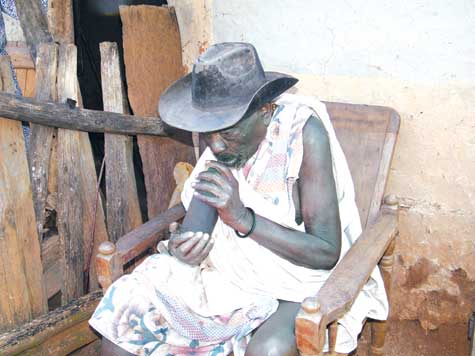×
The Standard e-Paper
Fearless, Trusted News
 |
| Kimagut arap Saina [Photo: Standard] |
By Michael Chepkwony
Despite his advanced age, Kimagut arap Saina is one of the busiest men in Songoliet village in Nandi. His power to ‘see’ stolen property and lost people has made him more popular than the police. He is considered the ‘eye’ of the village. The 107-year-old man is said to have magical powers to ‘catch’ thieves. For this reason, villagers claim, theft cases are rare.